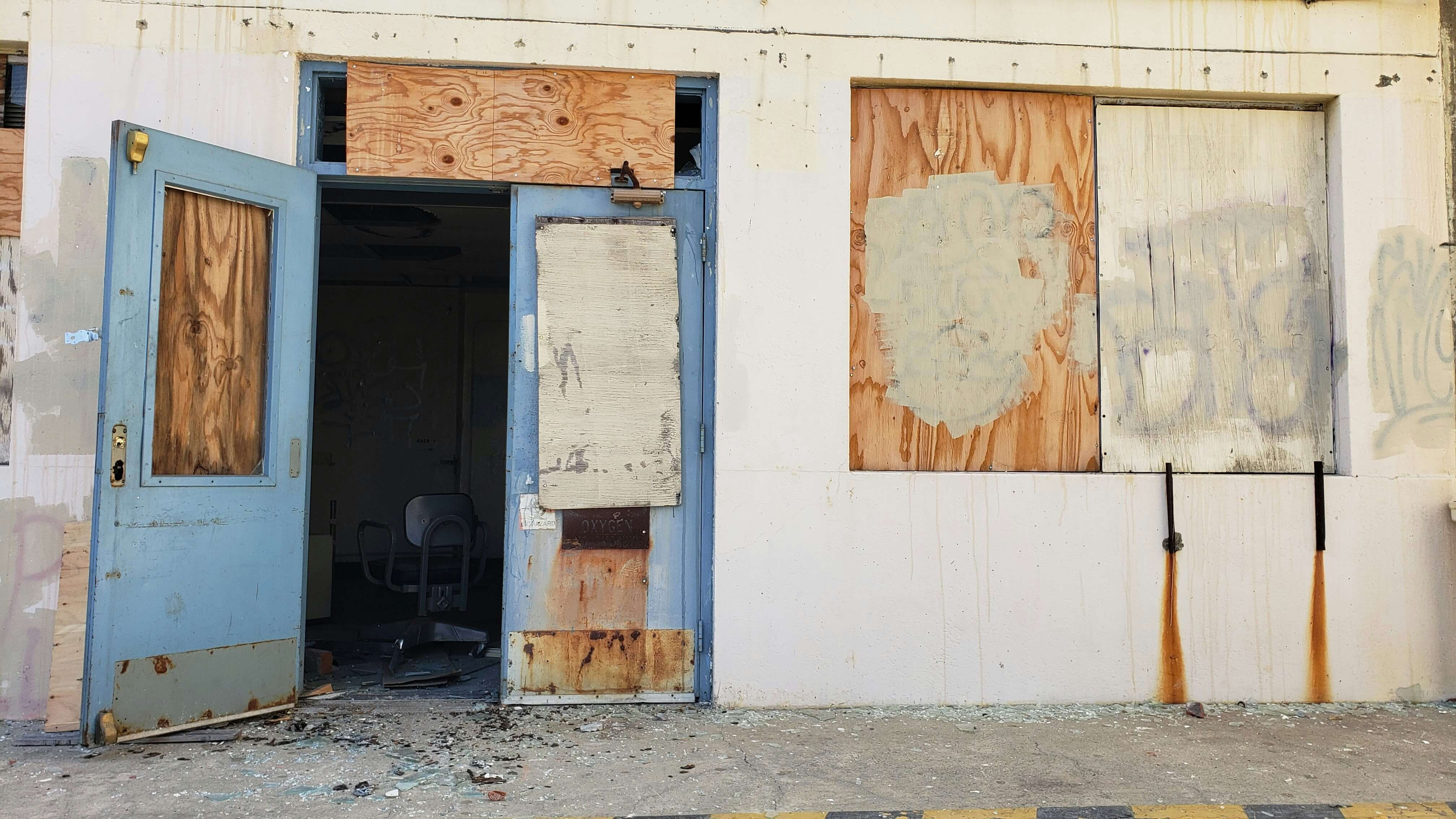You may have heard about celebrity chef Gordon Ramsay and his row with a group of ‘professional squatters’ at his historic £13 million pub, The York & Albany, in London[1]. This story highlights a growing concern that businesses with empty premises are at risk of potential squatting in their commercial property in the UK. Let’s explore what you need to know about commercial squatting and how you can safeguard your rights as a business owner.
In this guide, we’ll cover the following:
- What is squatting?
- Legal status of squatting in commercial properties
- Squatters’ rights in the UK
- Steps to legally remove squatters
- Common questions about squatting
What is squatting?
Squatting is when someone occupies an abandoned or unoccupied piece of land or a building – usually residential – without the legal permission of the owner. However, commercial squatting falls into its own category, influencing the rights and options available to property owners.
Squatting in commercial/non-residential properties
Non-residential properties include commercial and enterprise spaces such as shops, cafes and bars, as well as warehouses. While squatting in commercial properties is not legally a crime in UK law, actions associated with it can be, including:
- damaging property during entry and stay
- failing to leave upon court orders
- stealing from the property
- using utilities without permission
- engaging in fly-tipping
- ignoring noise abatement notices.
Squatters’ rights UK
In non-residential properties, squatters can sometimes gain rights over a property if they occupy it continuously without permission for a long period – usually 10+ years, especially if they act as the owners during that time.
This allows squatters to eventually claim the property legally when meeting certain conditions, including exclusive and continuous possession. To do this, the squatter can apply to the Land Registry to become the new registered owner of the property.
This aspect of squatters’ law is important for property owners to understand.
Legally removing squatters
Preventing legal possession
As commercial properties often involve more formal lease agreements than private premises, it’s usually more difficult for squatters to claim the building “continuously”, especially compared to the process of removing squatters from private property.
However, to proactively prevent squatters from legally possessing your premises, you can:
- conduct regular inspections and maintain up-to-date records of the property’s condition and occupancy – this can be important in legal proceedings concerning squatters’ rights to commercial property
- post clear notices stating that trespassing is not allowed and that the property is private and not abandoned
- act quickly if squatting occurs and apply for an Interim Possession Order (IPO) or a standard possession order, to start the process of eviction of squatters.
When dealing with legal matters, it’s always a good idea to consult a registered solicitor, specialising in property and squatters law, who can provide advice tailored to your situation.
Interim possession orders
An IPO is a swift and effective legal tool to help property owners regain control of their premises quickly. To start the legal process of evicting squatters from commercial premises, you need to apply to the court within 28 days of becoming aware that squatting has occurred.
Once the IPO is granted, squatters are legally required to vacate the property within 24 to 48 hours of receiving the official notice.
It’s important to ensure that all legal paperwork is well-prepared and submitted as soon as possible. This can speed up the process so you can get access to your property more quickly.
Claim for possession
When squatters have occupied a property for a long period, a traditional ‘Claim for Possession’ might suit your situation better due to the complexity of the legal situation. This is a scenario where understanding squatters’ rights to commercial property is essential.
What not to do
Handling situations with squatters requires care:
- don’t attempt to remove squatters by force
- don’t cut utilities or lock squatters inside
- maintain a professional demeanour and don’t harass or intimidate the squatters.
Check out our blog for more useful tips and helpful insights to improve your business.
Frequently asked questions
Dojo is a UK-based card payment provider. We specialise in helping independent and enteprise businesses make secure, reliable, and fast card payments with cutting-edge contactless card machines, featuring 3d security.
Sources
[1] https://www.bbc.co.uk/news/uk-england-london-68806116
*Please note that Dojo is not a legal entity and does not provide legal advice. The information in this guide is for general informational purposes only. For specific legal issues related to squatting and property rights, we recommend consulting a qualified solicitor or legal advisor.



